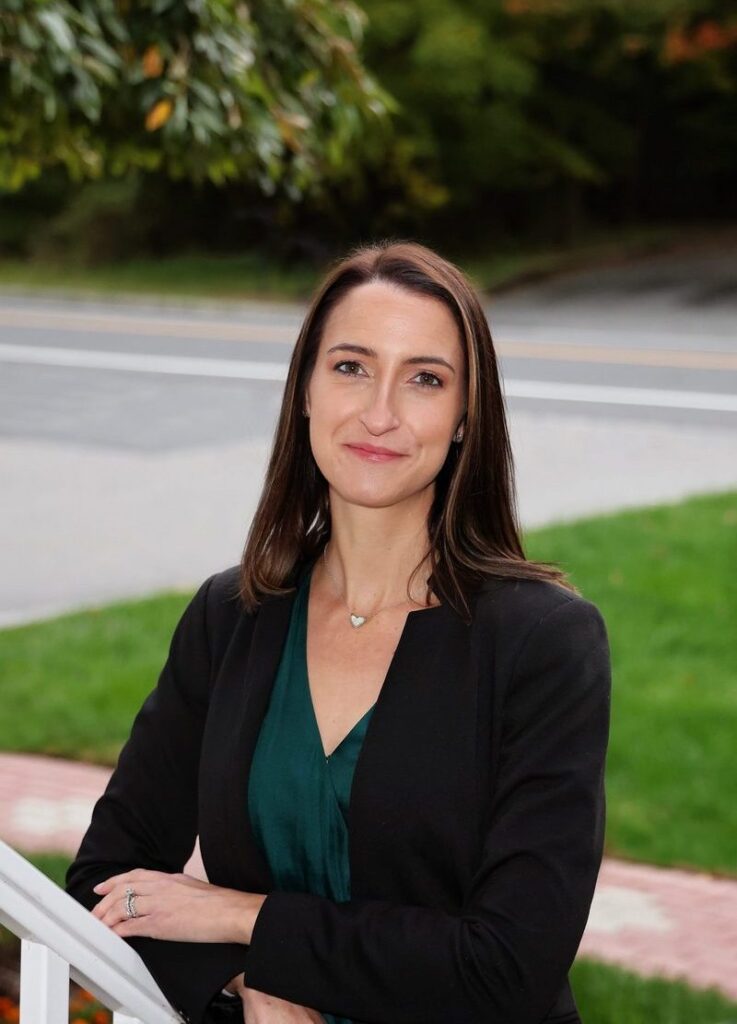My Specialties:
- Ages: children, teens, adults, & families
- Perinatal Mood and Anxiety Disorders
- Anxiety, Panic, & Phobias
- Perfectionism
- Depression, Self-Esteem, & Stress
- Trauma & PTSD
- Grief & Chronic Illness

Caitlin Dillaway is a Licensed Clinical Social Worker (LCSW) who works with children, adolescents, adults, and families using a wide variety of evidence-based approaches which are tailored to fit the unique needs of each client. Caitlin has extensive experience working with both children and adults with anxiety, bereavement and grief, behavioral issues, depression, mood disorders, personality disorders, phobias, and posttraumatic stress disorder (PTSD). Additionally, Caitlin has gone through extensive training to develop her expertise in working with perinatal mood and anxiety disorders.
Caitlin graduated with a bachelor’s degree in visual arts and a minor in psychology from Fordham University in 2006 before later going on to obtain her master’s degree from Rutgers Graduate School of Social Work in 2011. Prior to joining the Center for Anxiety and Behavior Management, Caitlin worked as a psychotherapist at both the Neurocognitive Institute and The George J. Otlowski Center, an outpatient mental health center, where she treated clients spanning across different age ranges, cultural backgrounds, and mental health issues. She completed training in childhood complex trauma through Dorothy B. Hersh Center in 2016. She has also completed training in Mindfulness Based Stress Reduction and incorporates mindfulness into her practice wherever possible.
She has enjoyed working both with individuals and families as well as facilitating supportive and psychosocial groups to assist clients with increasing socialization, learning coping skills, and benefitting from the overall group dynamic. She uses a compassionate and genuine approach with each of her clients and truly values the experience of working closely with others to identify their concerns and promote a sense of empowerment in order to begin the process of change. She continues to stay up to date on a wide variety of clinical approaches through regular attendance of workshops and trainings.
“The feeling of staying stuck can be overwhelming and even terrifying. Choosing to utilize therapy to identify the unhelpful patterns that keep us stuck is the first step in making lifelong changes. There is no “one size fits all” treatment plan for clients. Every single client is unique and therefore deserves individualized attention and empathy. Using evidence-based techniques, we can work together to create a renewed sense of strength and empowerment in order to help you achieve your goals and move forward in your life.”
